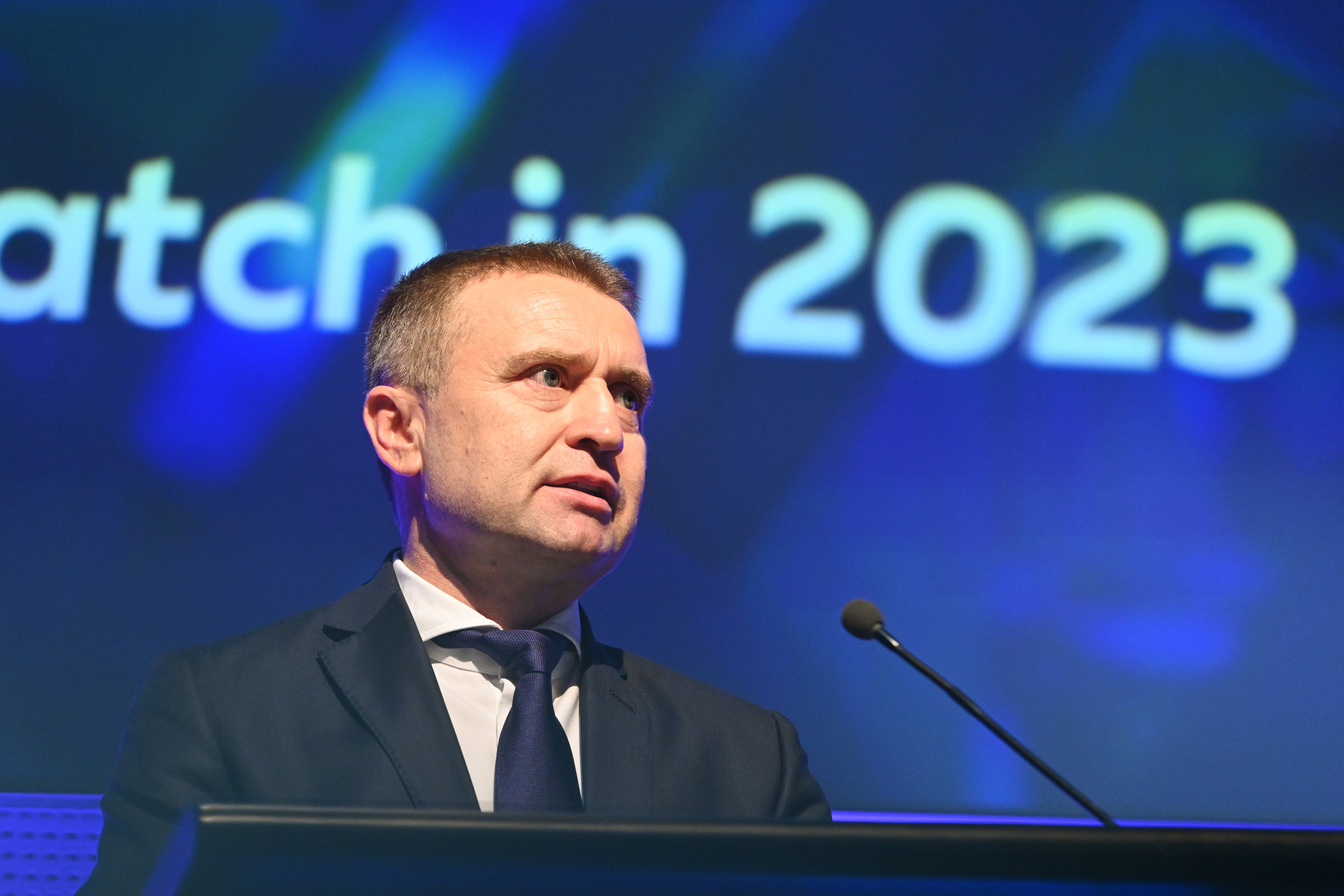The Financial Supervision Commission (FSC) has been notified by the competent authority of the Republic of Ireland (Central Bank of Ireland) of the forthcoming portfolio transfer from the insurance undertaking Aetna Health Insurance Company of Europe Designated Activity Company to AWL Health & Life, including insurance contracts on which the Republic of Bulgaria is a Member State where the risk is located. After reviewing the portfolio documents, the FSC decided to send a letter to the national competent authority of the Republic of Ireland on granting consent for the transfer of the insurance portfolio from the Aetna Health Insurance Company of Europe Designated Activity Company to AWL Health & Life.
The Financial Supervision Commission presented the project Unified Information System
The contractor of the project “Scale Focus” AD presented the Unified Information System (UIS) and its functionalities to more than 170 representatives of companies and associations from the non-banking financial sector, as part of the implementation of the Project “Building a Unified Information System (UIS) for the needs of the Financial Supervision Commission”, carried out with the financial support of the Operational Program “Good Governance”, co-financed by the European Union through the European Social Fund, under a Grant Agreement aid No. BG05SFOP001-1.011-0001-C01 / 23.07.2020 with the beneficiary Financial Supervision Commission.
The Secretary General of FSC – Ms. Denitsa Kirova shared with the large audience her thoughts saying that “with the implementation of UIS, the Bulgarian regulator is improving the process of serving citizens and businesses. Digital access to our administrative services saves time, integrates the activities and processes of the Commission with the systems of the European regulators. The UIS is designed to streamline regulatory and supervisory processes. It creates a sustainable and positive work environment which consolidates different data sources, automates reporting and provides a new model of communication in the non-banking financial sector.”
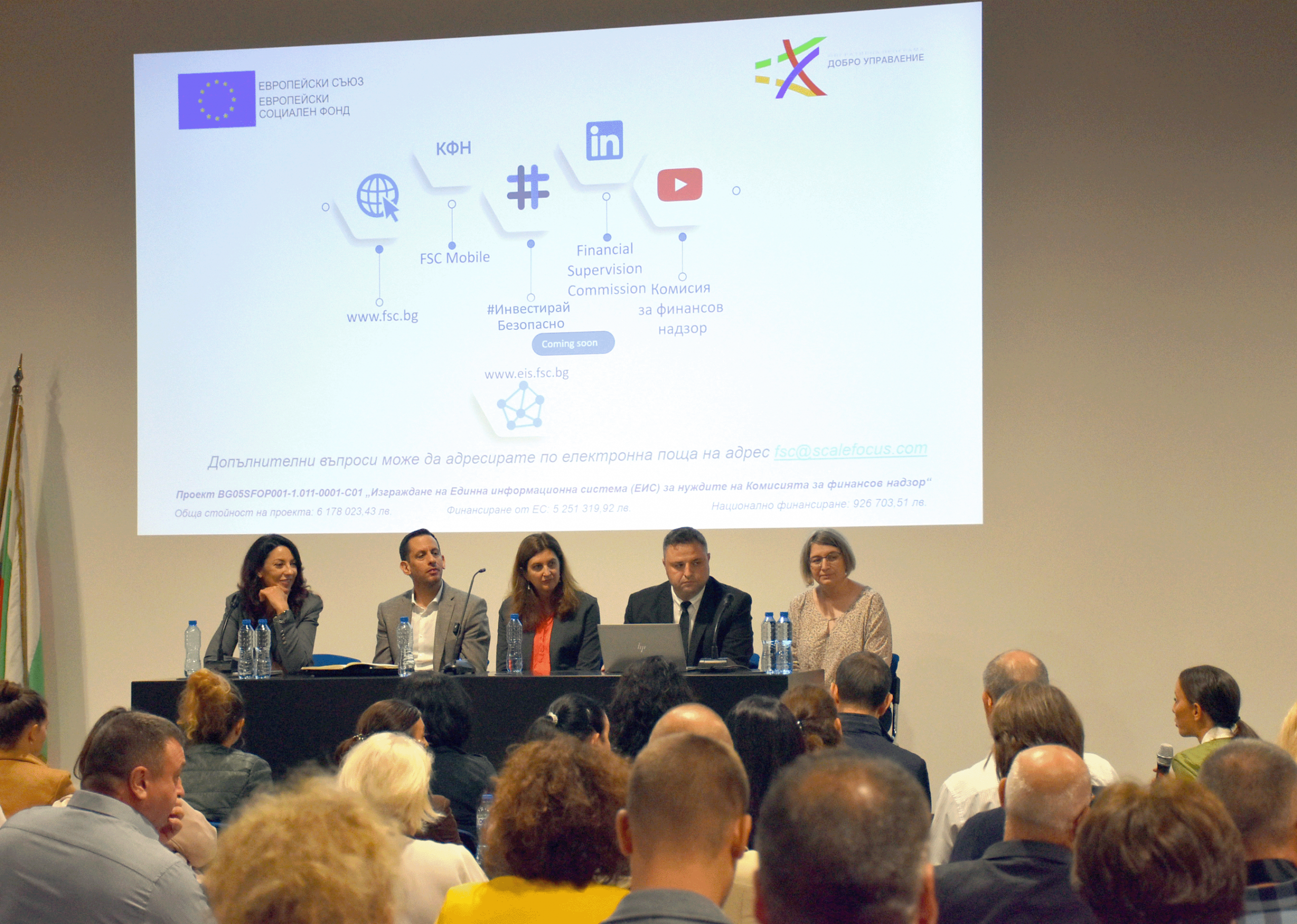
The digitization of the Commission is part of e-governance. It represents a constant priority in all national strategies and programs in the Republic of Bulgaria over the last decade. Digital solutions in the interest of citizens and businesses are a fundamental change in the administrative service model, as well as an opportunity for standardization, interoperability and resource sharing by institutions. It is the automated exchange of data between the information systems of different administrations and the national scheme for electronic identification which remains basic condition for effective e-governance in the country.
“Today, in a fast-paced digital world, it is of key importance to anticipate and respond to changes, in order to ensure efficiency, transparency, and above all, communication at a whole new level between the regulator and all non-banking financial sector actors. I believe that digital transformation is not just a modern term, but rather a positive challenge and a real necessity. The implementation of digital technologies in the work of the Financial Supervisory Commission is far from an ordinary modernization of our systems, but it is also a reassessment of the way we interact with citizens and businesses. By the today’s presentation of the digital FSC, we are not only declaring our firm position to work to increase the investment potential of our country, but we are building a standard, by dint of which the Commission fully stands on the map of European regulators,” said Boyko Atanasov, Chairman of the FSC.
The UIS of the FSC comprises key horizontal components of e-government by implementing the National strategy for the development of e-government in the Republic of Bulgaria 2019-2025. As consequence of its introduction, it becomes possible to review, track, control, validate and analyze the incoming and processed information. It also provides opportunity of automated data transfer, including from and to external systems at the national and international level; the electronic administrative services (EAS) provided by the FSC are being upgraded and the Commission’s registers are being improved.
UIS implements a reliable, modern and secure way of communication with EAU applicants when submitting applications, notifications, periodic information, as well as other documents. Business processes and procedures for processing, control and analysis of data and documents are automated. The regulatory and supervisory activity of the FSC is improved by consolidating information flows and processes and creating an effective mechanism for implementing risk-based control.
The UIS also aims at guaranteeing transparent, fast and secure digital supervision, which will increase the competitiveness of Bulgaria as an investment destination, as well as upgrade the achieved level of regulatory and supervisory standards.
The Financial Supervision Commission will continue to be part of the development of technologies and digitalization, as well as actively working to achieve synergy between regulatory requirements and their implementation in a digital environment.
Part of the concrete results achieved over the past years constitute the functioning Innovation Hub, which secures a single point of contact with fintech companies; the digital campaign – #INVEST SAFELY, which through the online space provides basic guidelines on how users can distinguish between legitimate and dishonest investment intermediaries; the mobile application FSC Mobile – to help users and supervised persons, using the most popular operating systems – Android and iOS, as well as UIS providing automation to all basic business processes in FSC.
More information about the project is available here (available only in bulgarian).
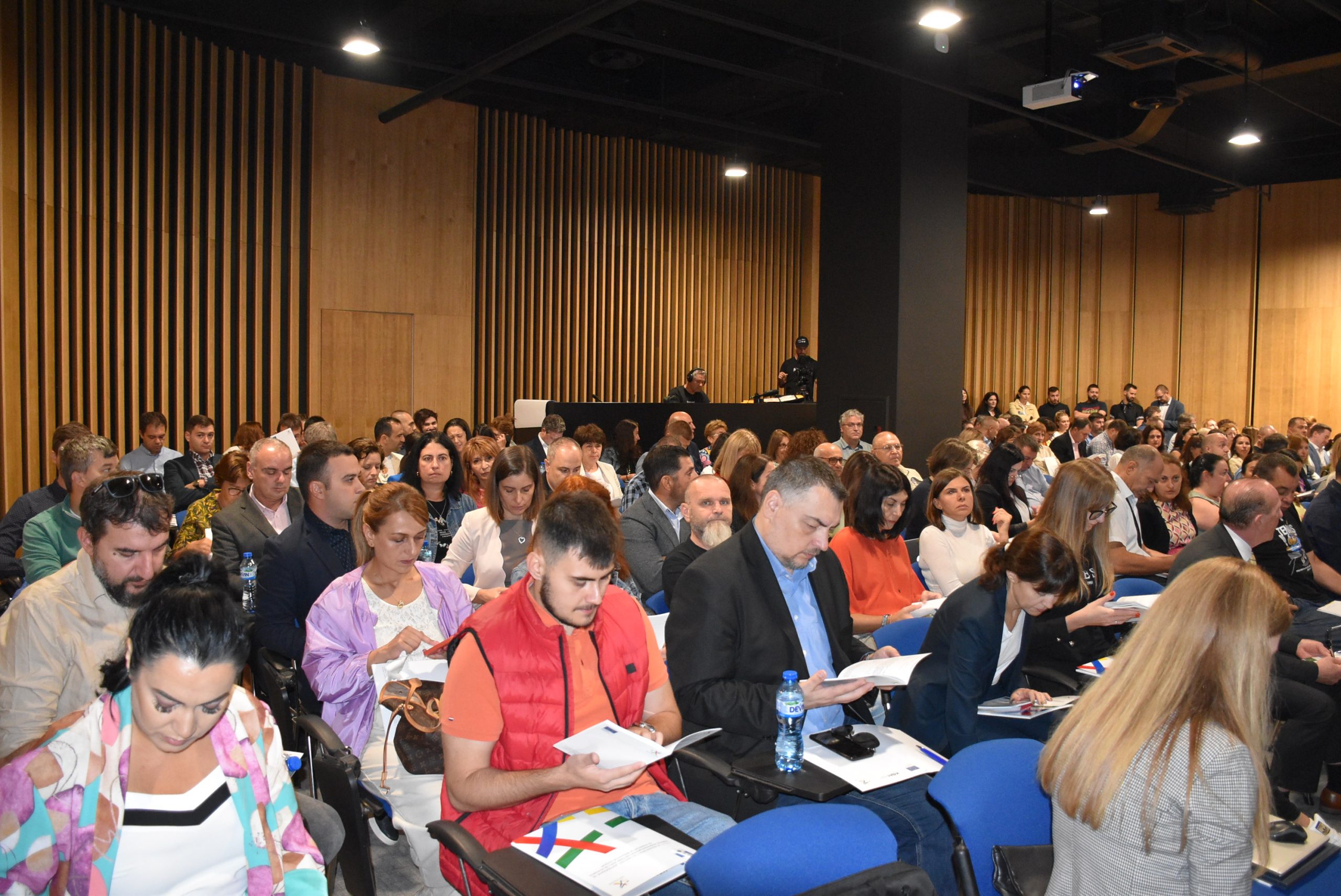
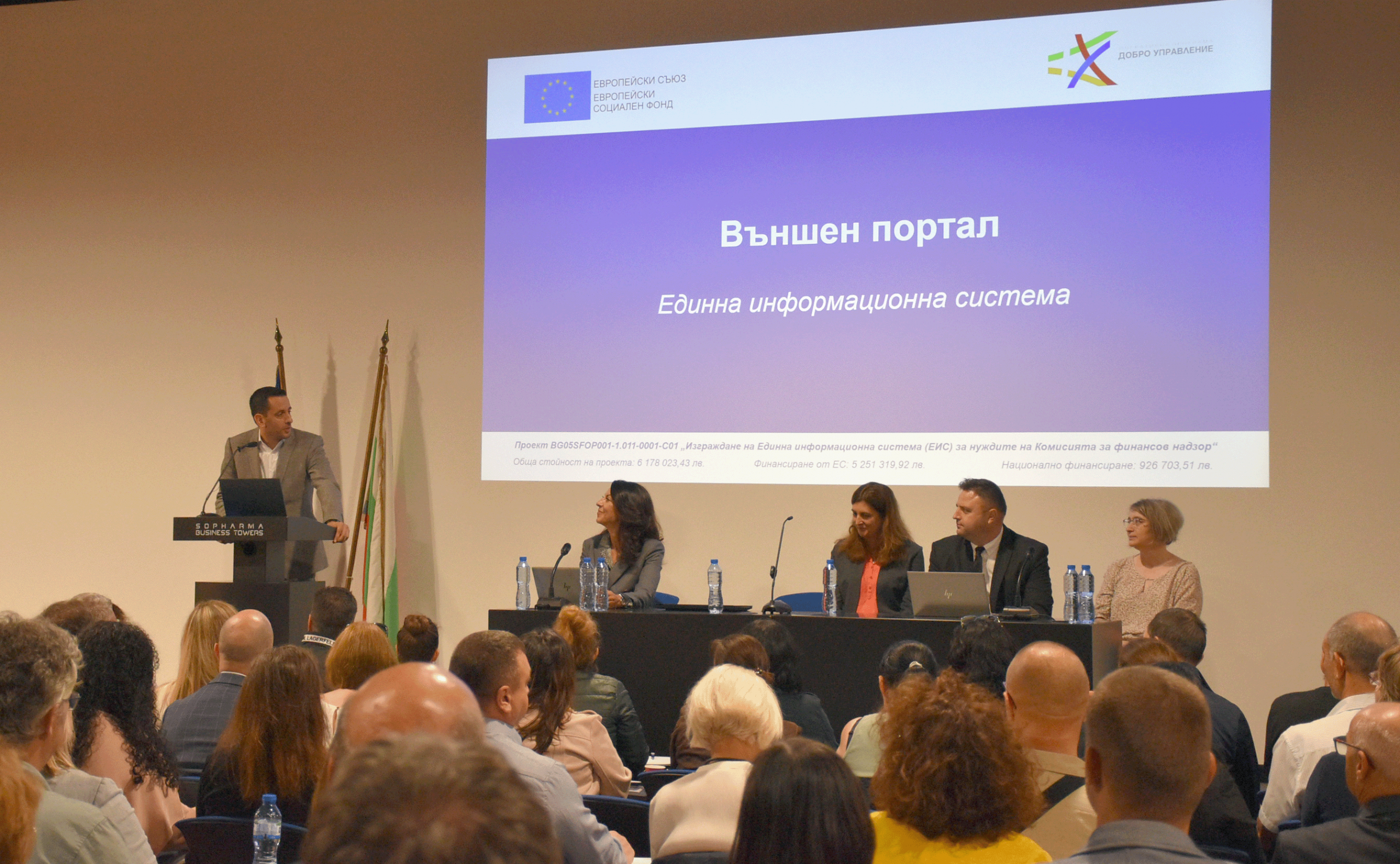
FSC and FID SANS carried out jointly training regarding the update of the NRA of the Republic of Bulgaria
In June 22nd, 2023 the Financial Supervision Commission and the Financial Intelligence Directorate – SANS conducted a training focused on topics related to the implementation of the AML/CFT measures provided for in the Law on Measures Against Money Laundering, the Law on the Measures Against the Financing of Terrorism and the acts on their implementation, organized by the Association of the Insurance Brokers in Bulgaria for its members. The event was attended by 30 representatives of members of the Association of the Insurance Brokers in Bulgaria.
In the course of the meeting were discussed the following topics:
- update of the NRA of the Republic of Bulgaria, adopted in 2023;
- CDD measures.
The conducted training aimed to deepen the understanding of the representatives of the insurance intermediaries which have obtained a licence under the terms and according to the procedure established by the Insurance Code, where carrying on one or more of the classes of insurance referred to in Section I of Annex No. 1 to the Insurance Code, of the importance to comply with the requirements of the preventive legislation and their essential role in the process of maintaining the stability of the financial sector and in assisting to the competent state authorities in preventing and detecting money laundering and terrorist financing activities.
Boyko Atanasov – Chair of the Financial Supervision Commission, presented the prize in the “Young Auditor” contest
By special invitation of the organizers from the Higher School of Insurance and Finance (VUZF) and the auditing companies “HLB Bulgaria” and “Zaharinova Nexia”, Mr. Boyko Atanasov, Chair of the Financial Supervision Commission, was among the official guests of the 12th edition of national audit contest “Young Auditor”. The competition distinguishes students from all over the country, with an interest in the auditing profession, as well as traditionally popularizes it among the whole society.
“I admire the 12 years of effort to give recognition to the auditing profession. The audit is a key element in the financial sphere, in particular, in the non-banking financial sector, and the functioning of the entire system is unthinkable without it”, said the Chair of the Financial Supervision Commission addressing the organizers.
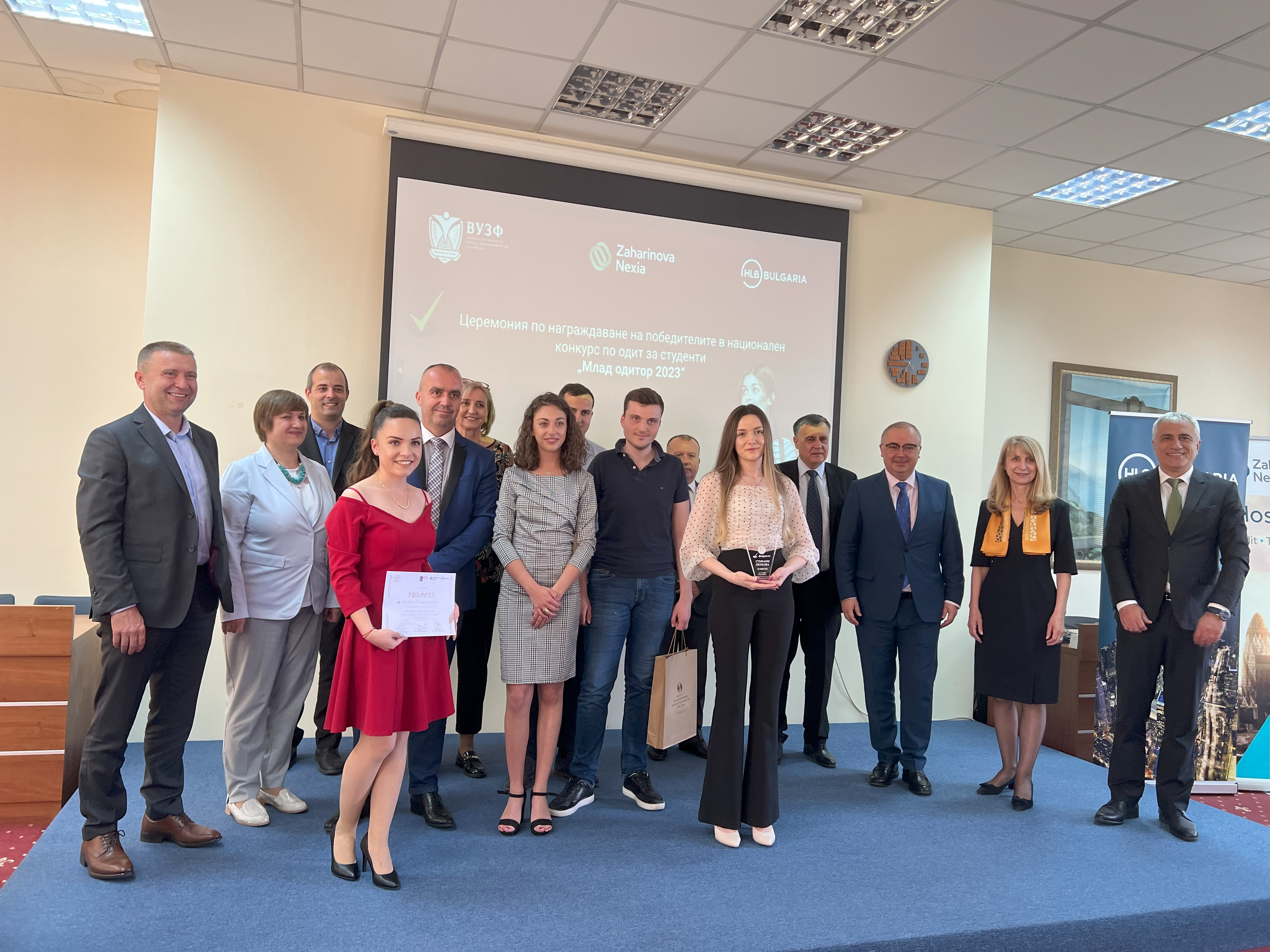
Mr. Boyko Atanasov presented the prize to the student who won first place in the contest. He addressed all the participants with the words: “Be strong, be brave, don’t be satisfied with what you have achieved today and remember that without extra effort, success is not possible. Good luck!”.
Among the special guests of the “Young Auditor” contest were Ms. Gorica Kozhareva – Chair of the Bulgarian National Audit Office, His Eminence Bishop Pachomius of Branitsa – Rector of the Sofia Theological Seminary, Mr. Vladimir Savov – Deputy Chair in charge of the Insurance Supervision Division in the Financial Supervision Commission, Mr. Genko Nikolov – Secretary General of the Commission for Public Oversight of Statutory Auditors, Mr. Boyko Kostov – Chair of the Institute of Certified Public Accountants in Bulgaria, Mr. Stefan Belchev – Director of the Public Financial Inspection Agency and Ms. Stefka Stoeva – former constitutional judge.
In 2023, more than 50 students from 12 universities in the country took part in the contest, among them the Higher School of Insurance and Finance (VUZF), Sofia University “St. Kliment Ohridski”, University of National and World Economy (UNWE), D. A. Tsenov Academy of Economics, University of Economics – Varna, Varna Free University “Chernorizets Hrabar”, Burgas Free University, South-West University “Neofit Rilski”, New Bulgarian University, Paisii Hilendarski University of Plovdiv.
The event ended with a speech towards the students and guests by Denislav Georgiev – the winner of the 2022 contest.
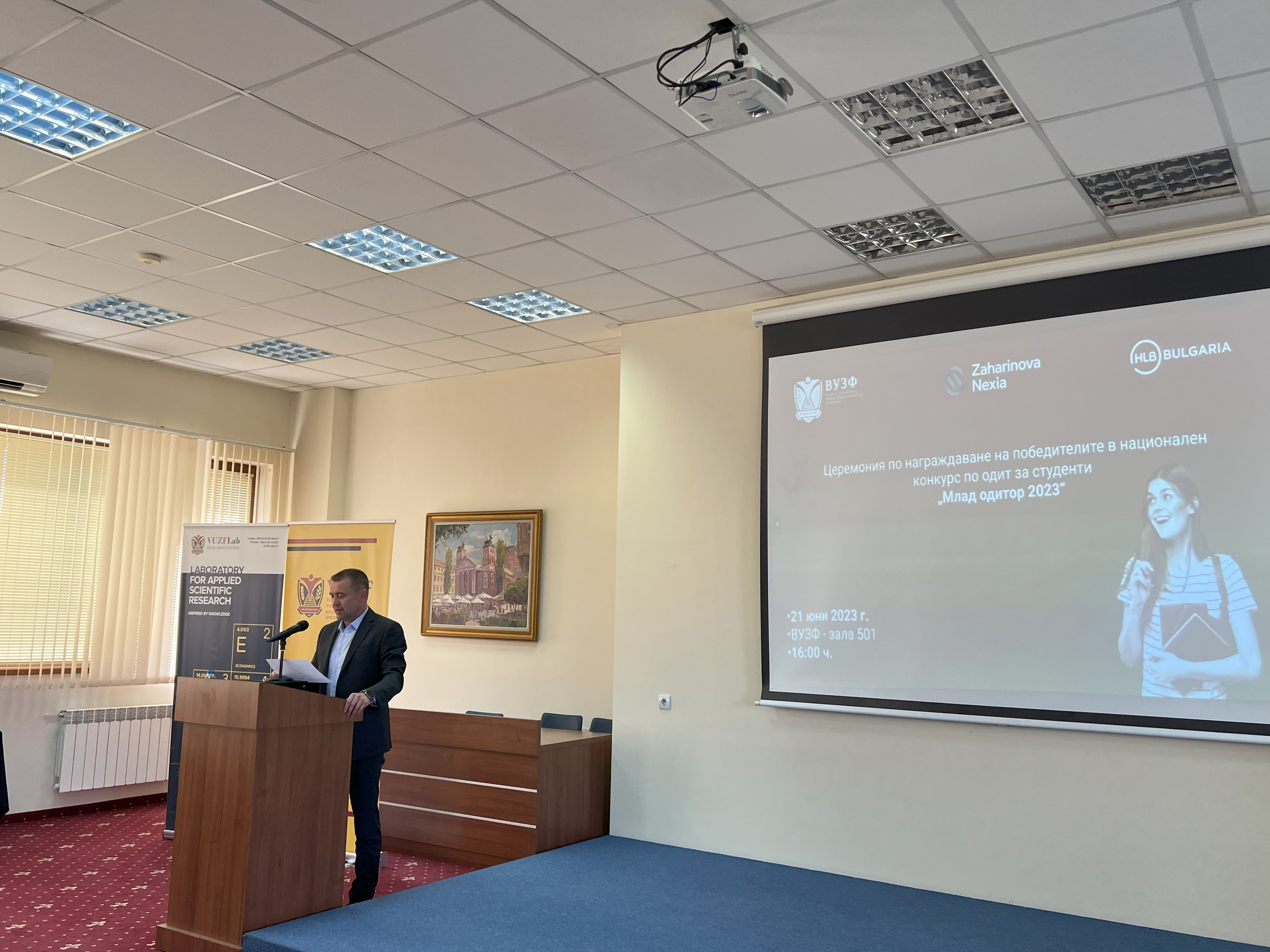
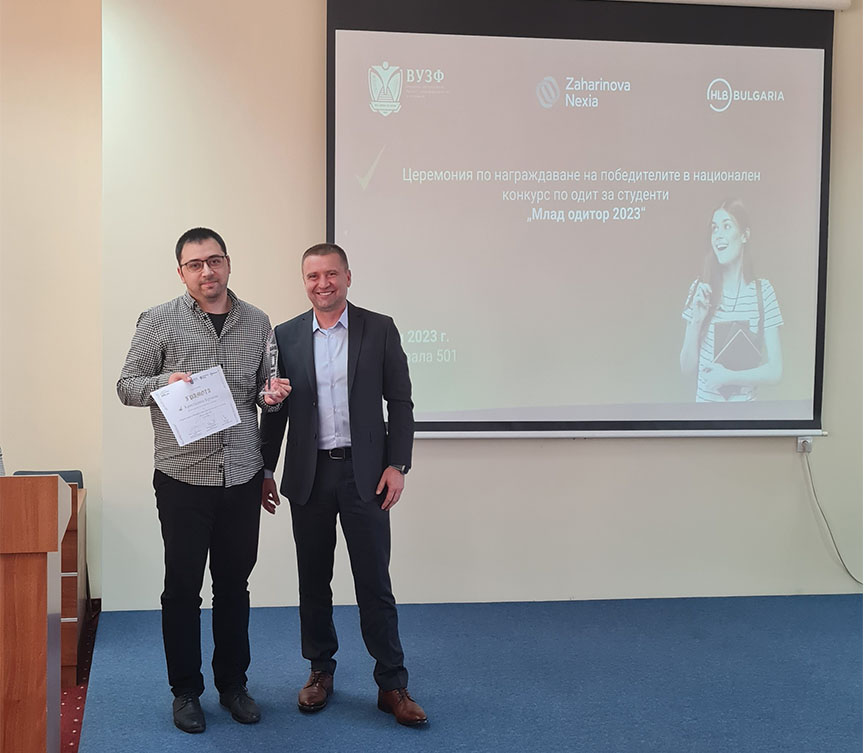
List of entities which are not authorised by FSC
You can find the list of the non-licensed Investment intermediaries in the attached file – 12.06.2023
The leadership team of the FSC honored Insurer of the Year 2022
On May 17, at an official ceremony, the best insurance and pension insurance companies in Bulgaria for 2022 were awarded
The awards, which are organized by the Higher School of Insurance and Finance (VUZF), the Association of Bulgarian Insurers (ABI), the Bulgarian Association of Supplementary Pension Security Companies (BASPSC), the foundation “Prof. Veleslav Gavriyski” and the Bulgarian Association of Insurance Brokers (BAIB), through an expert jury, for the 15th year in a row, determined the best companies from both sectors, according to publicly announced criteria.
Among the official guests of the prestigious event were – Mr. Rosen Zhelyazkov – Chair of the National Assembly, Mr. Lazar Lazarov – Deputy Prime Minister for Social Policies and Minister of Labor and Social Policy, Mr. Boyko Atanasov – Chair of the Financial Supervision Commission (FSC), the Deputy Chairs of the FSC – Ms. Diana Yordanova and Mr. Vladimir Savov, as well as the Chair of the National Social Security Institute (NSSI) – Mr. Ivaylo Ivanov, the Chair of the Economic and Social Council (ESC) – Ms. Zornitsa Rusinova, the Chair of the Bulgarian National Audit Office – Ms. Gorica Grancharova-Kozhareva, representatives of the insurance and pension insurance sector, business, finance and academia.
“It is not only a privilege but also a pleasure for me to attend the traditional award ceremony for those who have been honored in the insurance and social insurance sector. They give society security, stability and peace of mind, regardless of the difficult times we live in and play the role of a safety net of the social system. Thank you for the professionalism of the two sectors, doing everything possible for innovations and investments to enter in the market and be pillars of calm in this dynamic time”, said Mr. Boyko Atanasov, who presented the award in the category “Insurer of the Year – Life Insurance” to “DZI–Life Insurance EAD.
Mr. Vladimir Savov, Deputy Chair of the FSC in charge of the Insurance Supervision Division, presented the “Insurer of the Year – Most Dynamically Developing Company” and “Insurance Broker of the Year – Non-life Insurance” awards. He shared that “dynamically developing companies are the ones that in the coming years will be among the recognized leaders in the respective sectors that create innovation, improve market competition, offer better solutions for their customers and ensure this dynamism in the insurance sector”.
“Insurer of the Year – Most Dynamically Developing Company” for 2022 became the Bulgarian Export Insurance Agency (BAEZ), and “Insurance Broker of the Year – Non-life Insurance” – “SDI Group” OOD.
With the words “It is an extraordinary honor for me to present this prize for another year, which we know with what efforts and how much work is achieved. Despite the turbulence in the markets, the social insurance sector has proven that it is sustainable, capital adequate, ready to meet any challenge”, Ms. Diana Yordanova, Deputy Chair of the FSC in charge of the Social Insurance Supervision Division, presented the award in the category “Pension insurance company of the year”, for the activity of supplementary compulsory retirement insurance. PIC “Doverie” JSC became the winner in the category for 2022.
More about the winners of the 15th edition of the annual awards in the insurance sector – “Insurer of the Year”, “Pension Insurance Company of the Year”, “Insurance Broker of the Year” for 2022 could be find here.
Gallery:
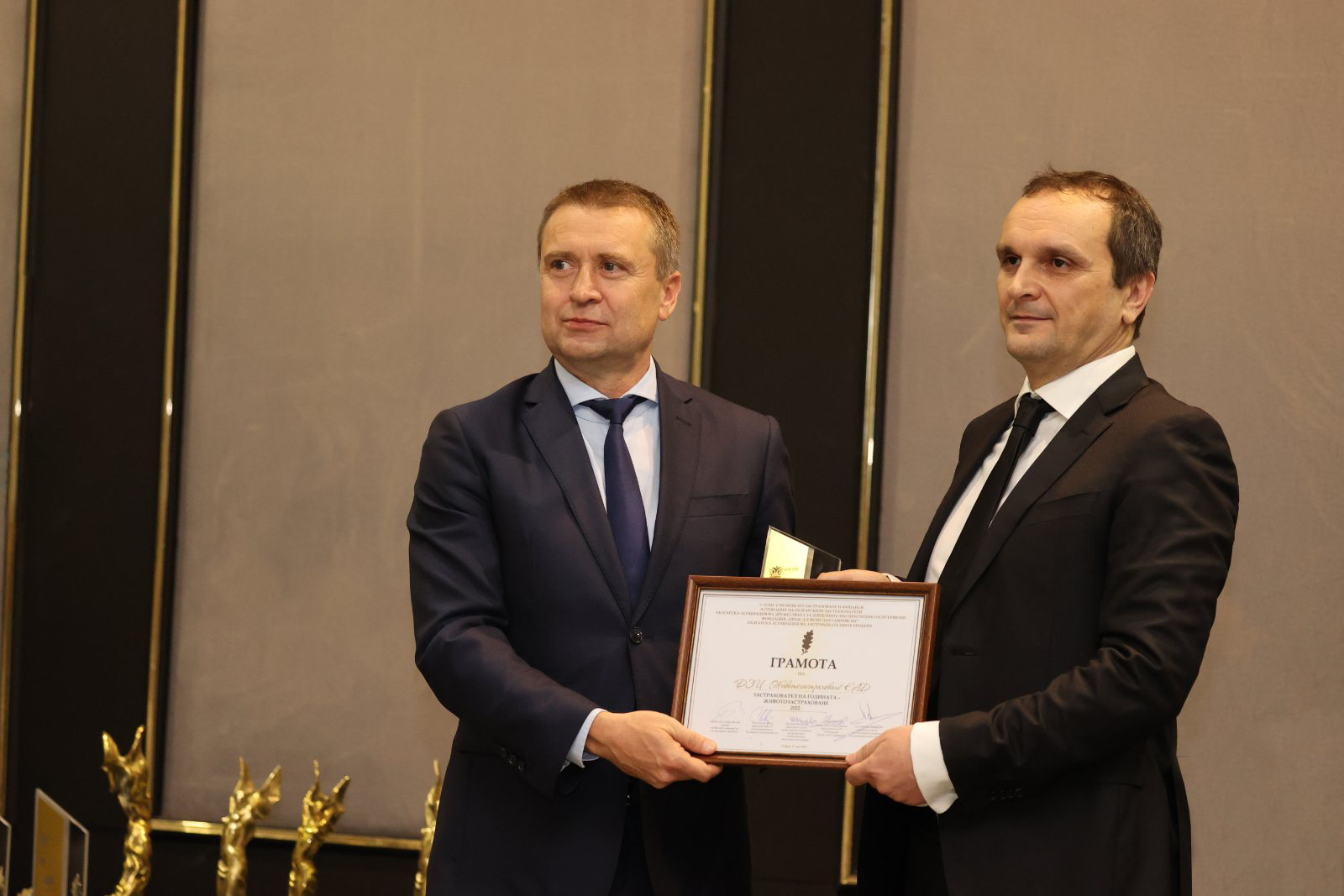
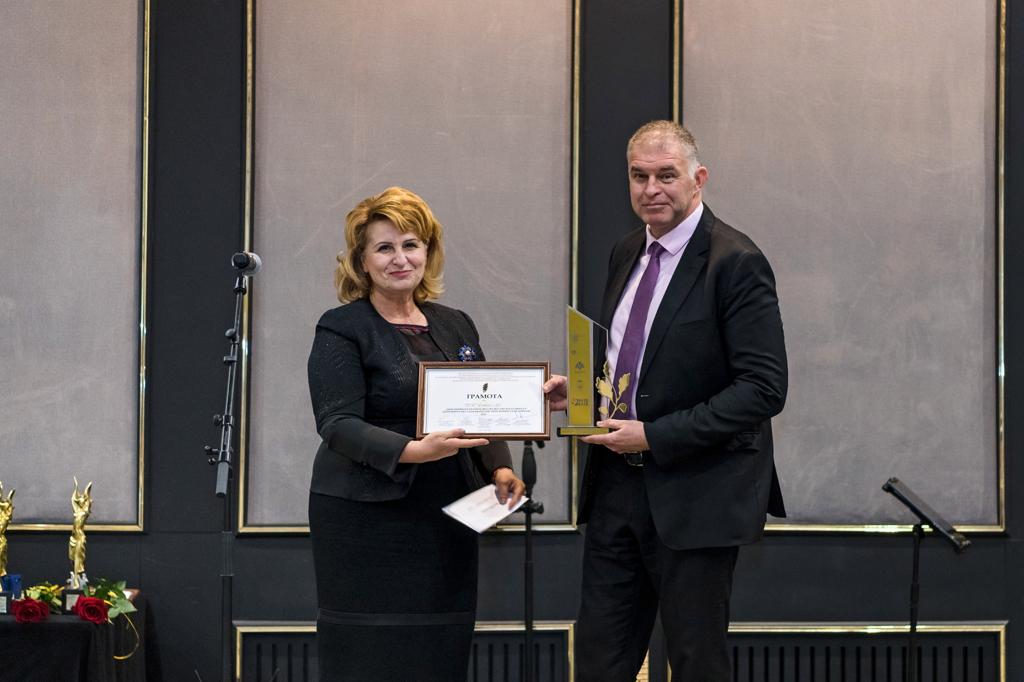
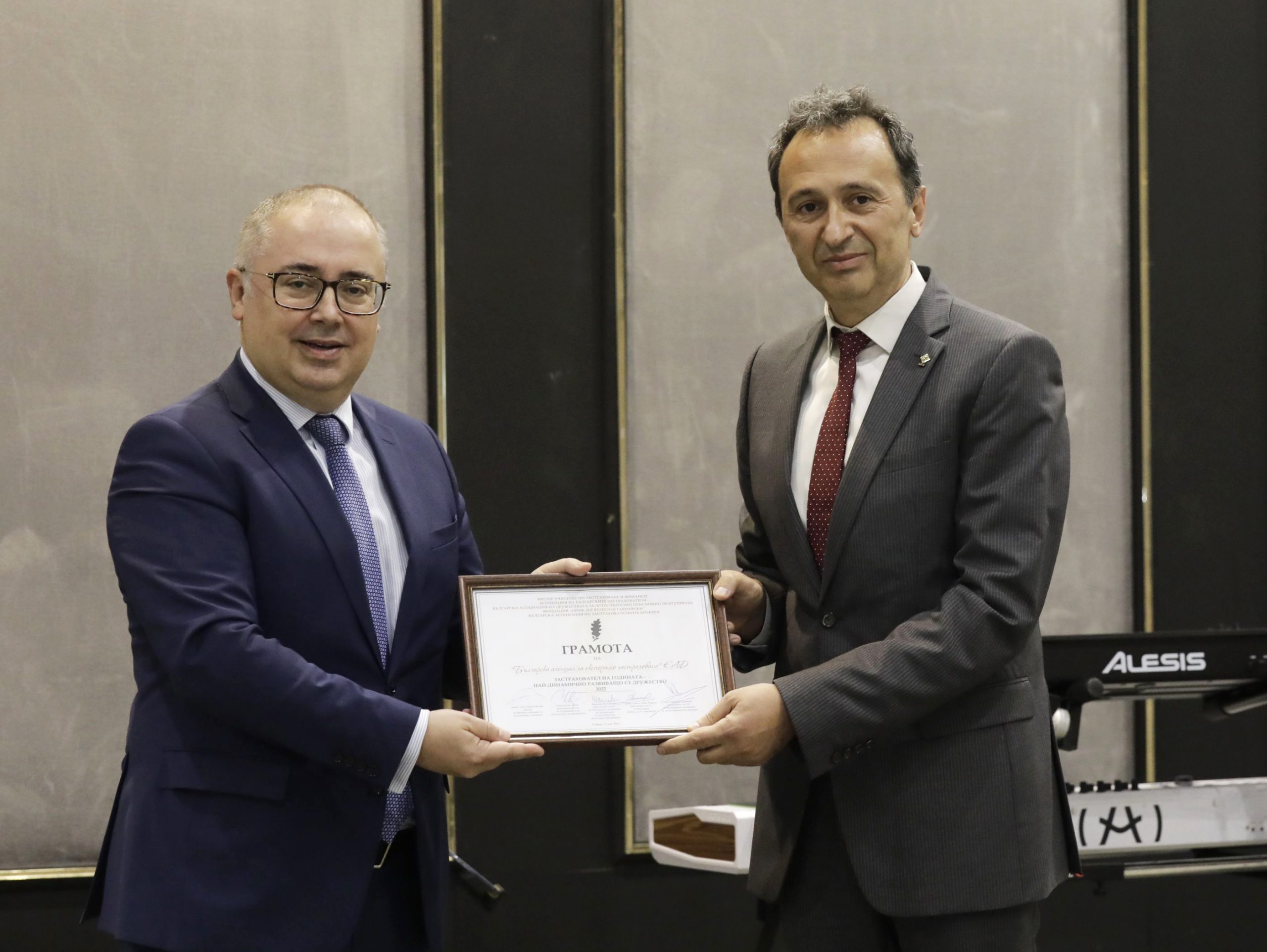
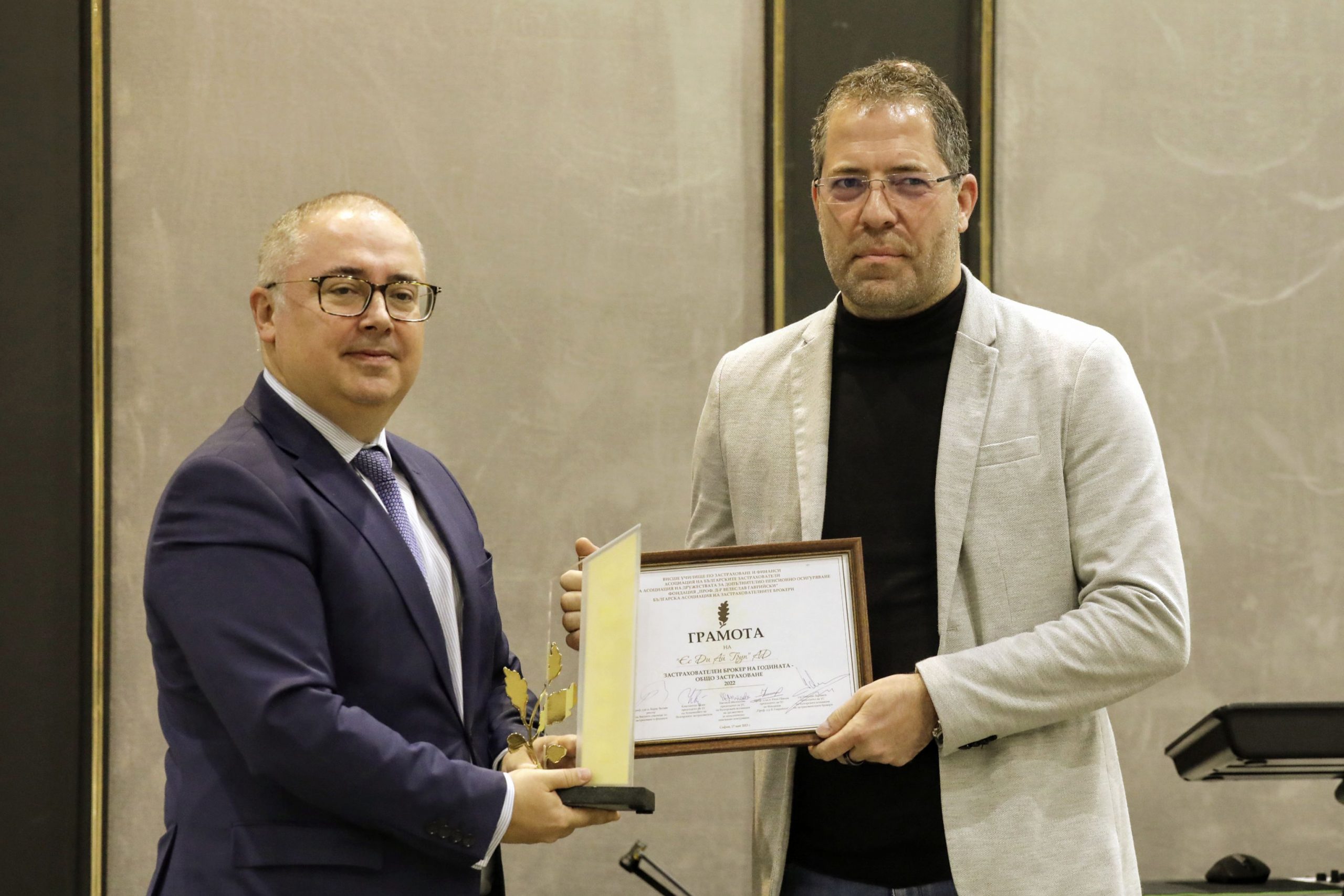
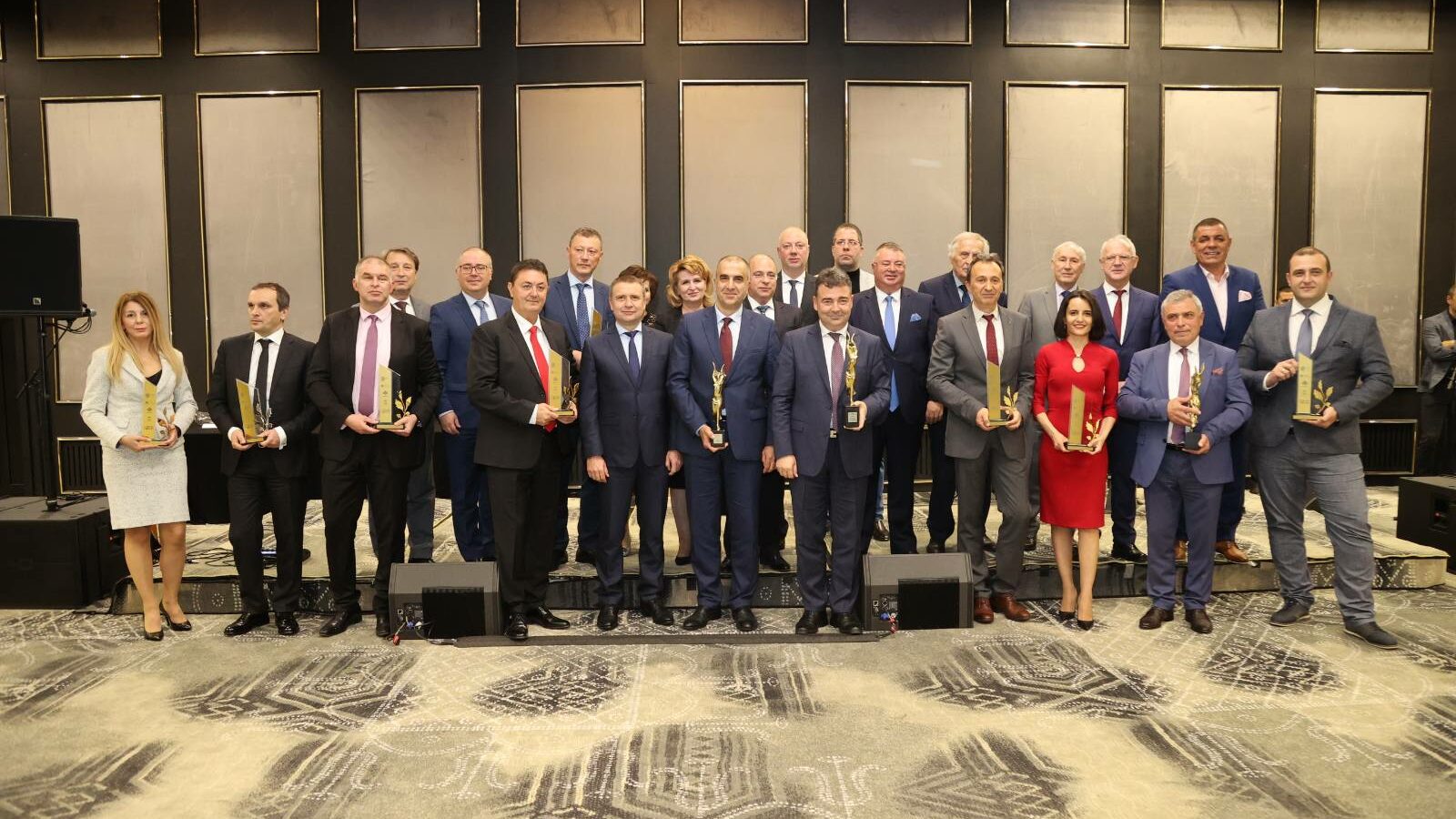
List of entities which are not authorised by FSC
You can find the list of the non-licensed Investment intermediaries in the attached file – 04.04.2023
Chair ofthe Financial Supervision Commission– Boyko Atanasov opened the „FinTechandInsurtechSummit”
On March 29 the Chair of the Financial Supervision Commission (FSC) – Boyko Atanasov opened the Capital forum – “Fintech and Insurtech Summit”. At the special invitation of Mr. Alexey Lazarov – editor-in-chief of Capital magazine, he spoke about the main challenges, among which are: clarity about the functioning and implementation of innovations in the FinTech sector, the balance of the innovation risks versus consumer benefits ; equilibrium between promoting innovations and maintaining levels of customer and business protection against potential negative events; assessment and adjustment of the regulatory framework against changes or completely new business models and the resulting potential risks.
The FSC Chair raised questions about why we need innovative FinTech products and how to create a regulatory framework that triggers development rather than restrictions, promotes progress rather than maintaining the status quo, provokes creative thinking rather than looking for legal obstacles to growth. “My belief is that laws and regulations change namely because of new products, services and technologies. I am convinced that the administration should support the business and be in a position of exceptional visibility and audibility, both for new products and for development trends”, Mr. Boyko Atanasov also shared.
The digital future of Europe and working in sync with pan-European regulations were within the scope of the topics covered by Mr. Atanasov. The creation of the European Blockchain Sandbox, the legislative proposal for a Regulation on Markets in Crypto-Assets (MiCA) and the Digital Operational Resilience Act (DORA), as part of the Digital Finance Package, aim to increase the quality of the services offered in the financial sector by stimulating the development of financial innovations, while establishing the appropriate levels of security and their protection. Relative to the Bulgarian capital market, this would mean an increase in its attractiveness, both for local and foreign investors.
The FSC Chair – Boyko Atanasov, assured the participants of the event that the FSC is focused on its main functions – the protection of users of financial services, ensuring a stable non-banking financial sector and creating an environment in which the business can operate without obstacles. In this regard, he pointed out that the purpose of the FSC is to consider financial innovation through the prism of these main functions of the Commission for the capital, insurance and pension insurance market.
Since 2020, the Financial Supervision Commission has been on the innovation map through the Innovation Hub, the mobile application presented a few months ago – FSC Mobile, as well as the building of a Unified Information System (UIS), the idea of which is to reduce the administrative burden, to obtain full digitization of administrative services and to have connectivity with European regulators at a modern digital level. The ultimate goal is to save business and people time.
Users and supervisees are also currently facilitated with access to information via FSC Mobile – the Commission’s own mobile application, which provides additional convenience by providing non-banking financial sector participants with up-to-date news, a calendar of events and a reference facility.
“In the last 3 years, the FSC has been the balancer of the non-banking financial sector, as well as a business partner. I believe that the FinTech industry and the regulator are one system, and together we will ensure that customers are protected when using some of the most innovative FinTech financial products, and together we will continue to build the digital future”, said the FCS Chair to the participants of the event.
Notification regarding Euroins Romania Asigurare-Reasigurare S.A.
The Financial Supervision Commission (FSC) has received a notification of a decision adopted on 17.03.2023 by the national supervisory authority of the Republic of Romania (Autoritatea de Supraveghere Financiara – ASF) to withdraw the license of the Romanian insurer Euroins Romania Asigurare-Reasigurare S.A., to open bankruptcy proceedings against this company, as well as to impose a ban on free disposal of the company’s assets.
Euroins Romania Asigurare-Reasigurare S.A. is a subsidiary, part of the group of “Euroins Insurance Group” AD, in respect of which the FSC is a group supervisory authority.
In this regard, the FSC informs that Euroins Romania Asigurare-Reasigurare S.A. does not carry out insurance activity in the Republic of Bulgaria. The decision of the Romanian supervisory authority does not affect the insured persons within the Bulgarian insurance companies of the Euroins Insurance Group AD group. The FSC has not identified solvency risks and compliance issues with the Individual companies of the Euroins Insurance Group AD and the group as a whole, resulting from the decision of ASF.
The Financial Supervision Commission will notify the Bulgarian public upon receiving additional information on this case in Romania.
The Financial Supervision Commission has sent notification about its consent for the portfolio transfer from “Societa Cattolica di Assicurazione S.p.A.”to“Generali Italia S.p.A.”
The Financial Supervision Commission (FSC) has been notified by the competent authority of the Republic of Italy (IVASS) of the forthcoming portfolio transfer from the insurance undertaking “Societa Cattolica di Assicurazione S.p.A.” to “Generali Italia S.p.A.”, both with head offices in the Republic of Italy. After reviewing the portfolio documents, the FSC decided to send a letter to the national competent authority of the Republic of Italy on granting consent for the transfer of the insurance portfolio from the “Societa Cattolica di Assicurazione S.p.A.” to “Generali Italia S.p.A.”.
After the insurance portfolio transfer “Societa Cattolica di Assicurazione S.p.A.” to “Generali Italia S.p.A.” will continue to operate on the territory of the Republic of Bulgaria under the conditions of the freedom to provide services.

